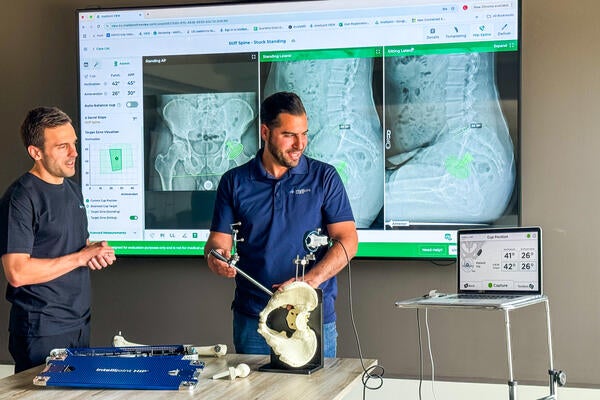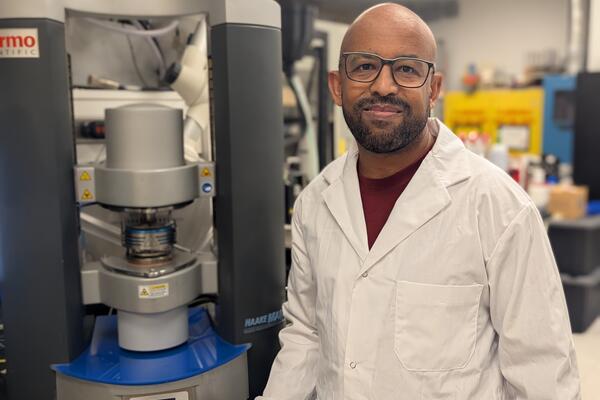
Reducing risk of blood clots after heart surgery
Researchers find new textured valve implant less likely to cause clotting

Researchers find new textured valve implant less likely to cause clotting
By Media RelationsSome patients who receive heart valve implants develop dangerous blood clots, and researchers from the University of Waterloo contributed to an international collaboration that reduces the risk.
Working with a team from the University of Groningen in the Netherlands, the researchers from Waterloo’s Faculty of Engineering proved that a heart valve implant with a textured surface is less likely to lead to the formation of blood clots — or thrombosis.
Blood clots in the heart can lead to life-threatening events such as stroke or heart attack. Patients with heart valve implants undergo lifelong therapy to avoid thrombosis. The researchers’ new findings are expected to improve health outcomes for many patients. Certain conditions such as cancer, pregnancy, being over the age of 55, smoking, obesity and immobility all elevate the risk of blood clots after the procedure.
“The implantation of a prosthetic heart valve is a life-saving procedure, but due to some medical conditions in patients who receive the valves they experience blood clotting, which can be very dangerous,” said Dr. Sushanta Mitra, a professor in Waterloo's Department of Mechanical and Mechatronics Engineering and executive director of the Waterloo Institute for Nanotechnology. “We used a method to understand how blood will interact with the valves and tested which types of valves are most likely to last longest without blood clots.”
The Waterloo work was led by Dr. Mitra and Dr. Sudip Shyam, a postdoctoral fellow in the Micro Nano-Scale Transport Lab. They developed an innovative technique that closely resembles conditions inside the body to determine the wettability — the ability of a liquid to maintain contact with a solid surface — of solid objects submerged under liquid. When the Dutch medical team developed their textured heart valve, they asked the Waterloo engineers to conduct tests on their implant’s reliability with positive results.
“Patients won’t need to have replacement valves as often thanks to this research,” Mitra said. “They will have a better quality of life post-surgery, and it will extend the length of time required between procedures.”
The paper, New insights and novel perspectives in bileaflet mechanical heart valve prostheses thromboresistance, appears in the Journal of Cardiothoracic Surgery.

Read more
Two University of Waterloo affiliated health-tech companies secure major provincial investment to bring lifesaving innovations to market

Read more
New medical device removes the guesswork from concussion screening in contact sports using only saliva

Waterloo researcher Dr. Tizazu Mekonnen stands next to a rheometer, which is used to test the flow properties of hydrogels. (University of Waterloo)
Read more
Plant-based material developed by Waterloo researchers absorbs like commercial plastics used in products like disposable diapers - but breaks down in months, not centuries
The University of Waterloo acknowledges that much of our work takes place on the traditional territory of the Neutral, Anishinaabeg, and Haudenosaunee peoples. Our main campus is situated on the Haldimand Tract, the land granted to the Six Nations that includes six miles on each side of the Grand River. Our active work toward reconciliation takes place across our campuses through research, learning, teaching, and community building, and is co-ordinated within the Office of Indigenous Relations.